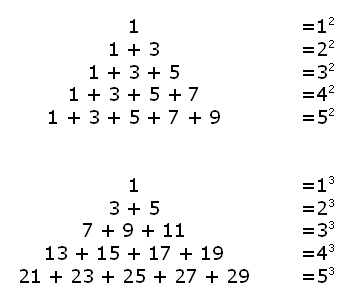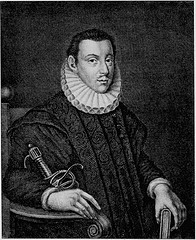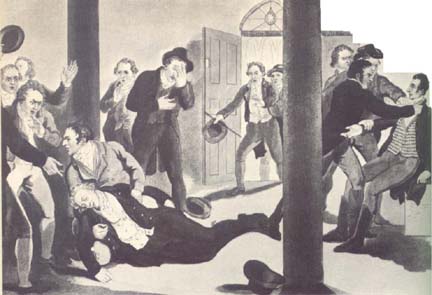“The greater part of the world’s troubles are due to questions of grammar.” — Montaigne
Long Distance
Over water, or a surface of ice, sound is propagated with remarkable clearness and strength. … Lieut. Foster, in the third Polar expedition of Capt. Parry, found that he could hold conversation with a man across the harbor of Port Bowen, a distance of six thousand six hundred and ninety-six feet, or about a mile and a quarter. This, however, falls short of what is asserted by Derham and Dr. Young, — viz., that at Gibraltar the human voice has been heard at the distance of ten miles, the distance across the strait.
— Charles Carroll Bombaugh, Gleanings for the Curious from the Harvest-Fields of Literature, 1890
“Dirge”
“To the memory of Miss Ellen Gee, of Kew, who died in consequence of being stung in the eye by a bee.”
Peerless, yet hapless, maid of Q!
Accomplish’d LN G!
Never again shall I and U
Together sip our T.
For, ah! the Fates! I know not Y,
Sent ‘midst the flowers a B,
Which ven’mous stung her in the I,
So that she could not C.
LN exclaim’d, “Vile spiteful B!
If ever I catch U
On jess’mine, rosebud, or sweet P,
I’ll change your stinging Q.”
“I’ll send you, like a lamb or U,
Across th’ Atlantic C,
From our delightful village Q,
To distant OYE.”
A stream runs from my wounded I,
Salt as the briny C,
As rapid as the X or Y,
The OIO, or D.”
Then fare thee ill, insensate B!
Which stung, nor yet knew Y;
Since not for wealthy Durham’s C
Would I have lost my I.”
They bear with tears fair LN G
In funeral RA,
A clay-cold corpse now doom’d to B,
Whilst I mourn her DK.
Ye nymphs of Q, then shun each B,
List to the reason Y!
For should A B C U at T,
He’ll surely sting your I.
Now in a grave L deep in Q,
She’s cold as cold can B;
Whilst robins sing upon A U
Her dirge and LEG.
— New Monthly Magazine, reprinted in A Collection of Newspaper Extracts, 1842
In-Flight Meal
In March 1876, Scientific American reported that witnesses in northeast Kentucky had observed “flakes of meat” drifting down from a clear sky. The flakes, which were “perfectly fresh,” measured up to 3-4 inches square and were confined to an oblong field.
The Louisville Courier-Journal reported that a local butcher roasted a slice and pronounced it “palatable.” Presumably he did this before hearing the prevailing theories: that lightning had roasted a flock of ducks–and that a flight of buzzards had disgorged its latest meal.
Math Notes

“Fidelity of a Dog”
An affecting anecdote was recently recorded in the French papers. A young man took a dog into a boat, rowed to the centre of the Seine, and threw the animal over, with intent to drown him; the poor dog often tried to climb up the side of the boat, but his master as often pushed him back, till, overbalancing himself, he fell overboard. As soon as the faithful dog saw his master in the stream he left the boat, and held him above water till help arrived from the shore, and his life was saved.
— T. Wallis, The Nic-Nac; or, Oracle of Knowledge, 1823
In a Word
agerasia
n. youthful appearance in an old person
Also:
neanimorphism
n. the quality of looking younger than one’s age
Showoff

When 17-year-old polymath James Crichton arrived in Paris in 1578 to complete his education, he immediately challenged the faculty of the College of Navarre to a disputation. And he was pretty cocky about it:
He proposed that it should be carried on in any one of twelve specified languages, and have relation to any science or art, whether practical or theoretical. The challenge was accepted; and, as if to show in how little need he stood of preparation, or how lightly he held his adversaries, he spent the six weeks that elapsed between the challenge and the contest, in a continual round of tilting, hunting, and dancing.
“On the appointed day, however, and in the contest, he is said to have encountered all the gravest philosophers and divines, and to have acquitted himself to the astonishment of all who heard him. He received the public praises of the president and four of the most eminent professors. The very next day he appeared at a tilting match in the Louvre, and carried off the ring from all his accomplished and experienced competitors.”
(From Samuel Griswold Goodrich, Curiosities of Human Nature, 1852)
There Goes the Neighborhood
A Martian sand lizard can reproduce itself in a single day. Start with a single sand lizard and on succeeding days you’ll have 2, then 4, and so on. In 30 days you’ll have 536,870,912 lizards.
How long would it take to reach that number if you started with two lizards?
“Remarkable Coincidence”

On the night of May 11, 1812, John Williams of Redruth in Cornwall awakened his wife and told her he’d dreamed that he was in the lobby of the House of Commons and saw a man shoot the chancellor. Twice he went back to sleep, and twice he had the same dream.
Williams repeated the experience to friends in the following days, one of whom told him, “Your description is not at all that of the Chancellor, but is certainly very exactly that of Mr. Perceval, the chancellor of the exchequer.” Williams was explaining that he had never met or corresponded with this man when a messenger arrived from Truro with word that Perceval had been shot by an assassin in the lobby of the House of Commons on May 11 — the night of Williams’ dream.
According to a contemporary news account, Williams visited the spot six weeks later: “Immediately that he came to the steps at the entrance of the lobby, he said, ‘This place is as distinctly within my recollection, in my dream, as any room in my house,’ and he made the same observation when he entered the lobby. He then pointed out the exact spot where Bellingham stood when he fired, and which Mr. Perceval had reached when he was struck by the ball, where, and how he fell. The dress both of Mr. Perceval and Bellingham agreed with the description given by Mr. Williams, even to the most minute particular.”
